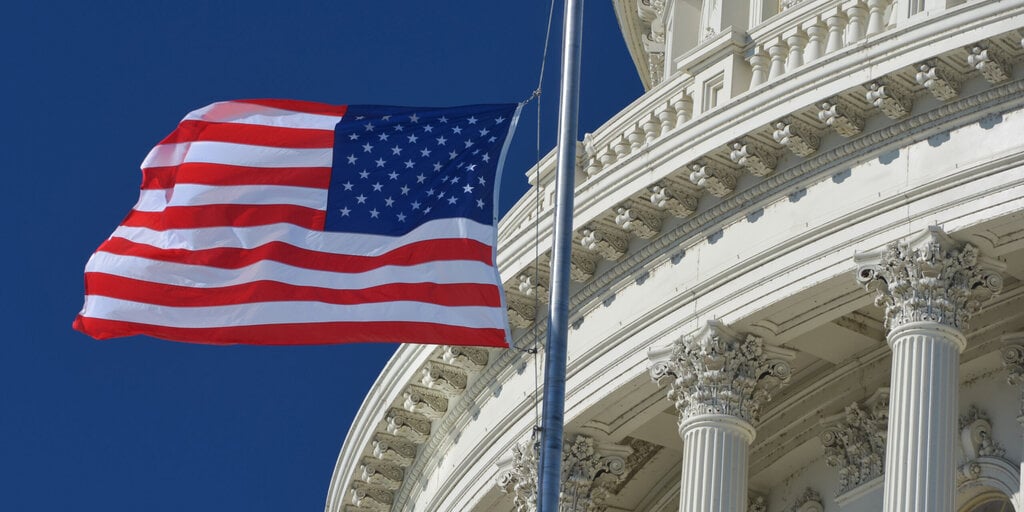Lawmakers on Wednesday voted in favor of a crypto market structure bill that could have a major impact on digital assets in the U.S. regulatory landscape if it eventually becomes law.
Dubbed the Financial Innovation and Technology for the 21st Century Act, or FIT21, it passed the House of Representatives by a vote of 279-136. 208 Republican members of the House supported the bill and 71 Democrats supported FIT21. All but three of the 217 Republican House members supported FIT21, while a third of Democrats supported the measure.
The bipartisan push behind FIT21 includes views on Capital Hill that are turning to crypto. Just last week, a measure to restore crypto protection regulations for banks from the US Securities and Exchange Commission (SEC) passed both the House and Senate, with support from prominent lawmakers like Senate Majority Leader Chuck Schumer (D-NY).
The draft approved by the House on Wednesday creates a federal framework for the regulation of digital assets, establishing jurisdiction between the Commodity Futures Trading Commission (CFTC) and the SEC. Giving issuers the ability to self-verify assets such as digital commodities, among other initiatives, the bill was flagged Wednesday by SEC Chairman Gary Gensler.
Among those who complained about the law, President Joe Biden, in written comments, questioned the lack of adequate protections for investors. Still, in his Wednesday letter, Biden called for a “comprehensive and balanced regulatory framework” for digital assets, suggesting that the situation is currently lacking.
By reducing the SEC's regulatory burden, FIT21 gives the CFTC exclusive regulatory authority over digital asset products. According to the law, criteria are set for that level based on a project's level of decentralization, factors such as how much token supply a party has or how vulnerable a party is to influence by a single party.
Hours before the bill went to the House for a vote, members of the House debated the merits of FIT21. Among the bill's sponsors were House Financial Services Committee (HSFC) Chairman Patrick McHenry (R-S.C.); “The SEC and CFTC are currently in a food fight for control of this asset class.”
“The same organizations have created an impossible situation where two different agencies take competing and conflicting enforcement actions, leaving consumers behind and innovators behind,” he continued. “FIT21 fixes that.”
However, several Democrats, including Rep. Maxine Waters, criticized the bill. “This bill still provides exemptions from critical securities laws,” she said. She later said that crypto companies “refused to register” and that the bill would make them “free” and “give them the opportunity to operate without regulation”.
“How can this be?” She said.
Brad Sherman (D-CA) said changes to the definition of security under the bill would serve as a “stab in the hundreds of trillions of dollars in markets that dominate our economy.” Additionally, the technology has raised concerns about crypto users evading taxes or sanctions if it is tied to a simple touch.
Meanwhile, Sean Caston (D-IL) pointed to reports of terrorist groups using cryptocurrency and the child sexual abuse (CSAM) trade. “The bad guys love crypto,” he said.
Clarification of authority between the CFTC and the SEC is a long-held hope in the crypto industry, as advocates say the current rules are unclear. And FIT21 will address several areas in crypto, including managing trading platforms, decentralized finance, and how developers can raise money for projects.
The passage of FIT21 comes after years of moves on Capitol Hill to regulate other cryptocurrencies, such as stablecoins. Last year, House Republicans established A subcommittee on digital assets with a clear goal of creating transparent crypto regulations.
Introduced by McHenry as the crypto “OG”, Representative Warren Davidson (R-OH) has been long overdue for crypto legislation after six years of working on other crypto measures. Davidson said he started working on crypto regulations in 2018, starting with the Token Taxonomy Act.
“For too long, we've stifled innovation and investment in digital asset projects abroad,” he said, after Congress failed to provide the clarity we've consistently sought. “We finally have the opportunity to stop this trend and solidify ourselves as leaders in this industry.”
As the bill moves closer to the Democrat-controlled Senate, it could face insurmountable hurdles before reaching Biden's desk. However, crypto-friendly Senator Cynthia Lummis (R-WY) suggested on Twitter (pronounced X) that lawmakers could rally with FIT21 with bipartisan support.
“There are bipartisan members in both houses of Congress who support crypto,” she said. “The future is very bright.”
Edited by Guillermo Jimenez and Andrew Hayward.
Daily Debrief Newspaper
Start every day with top news stories, plus original features, podcasts, videos and more.













